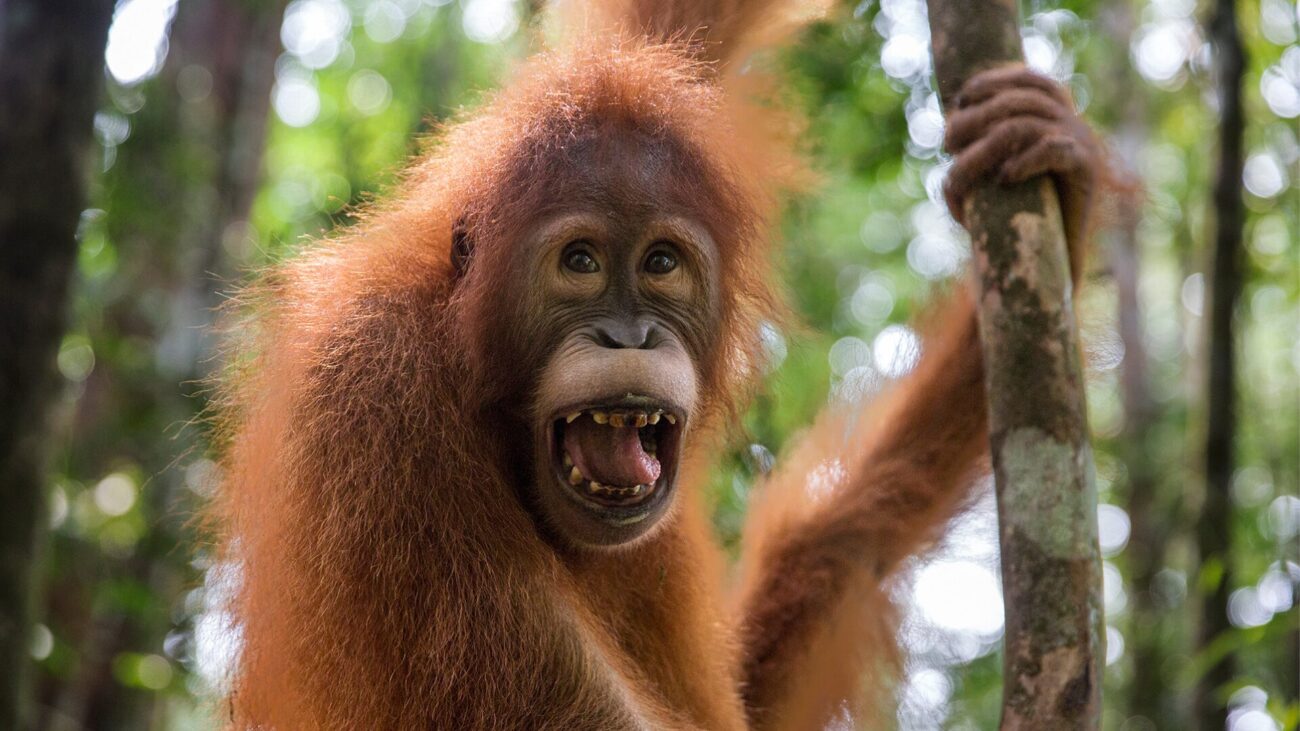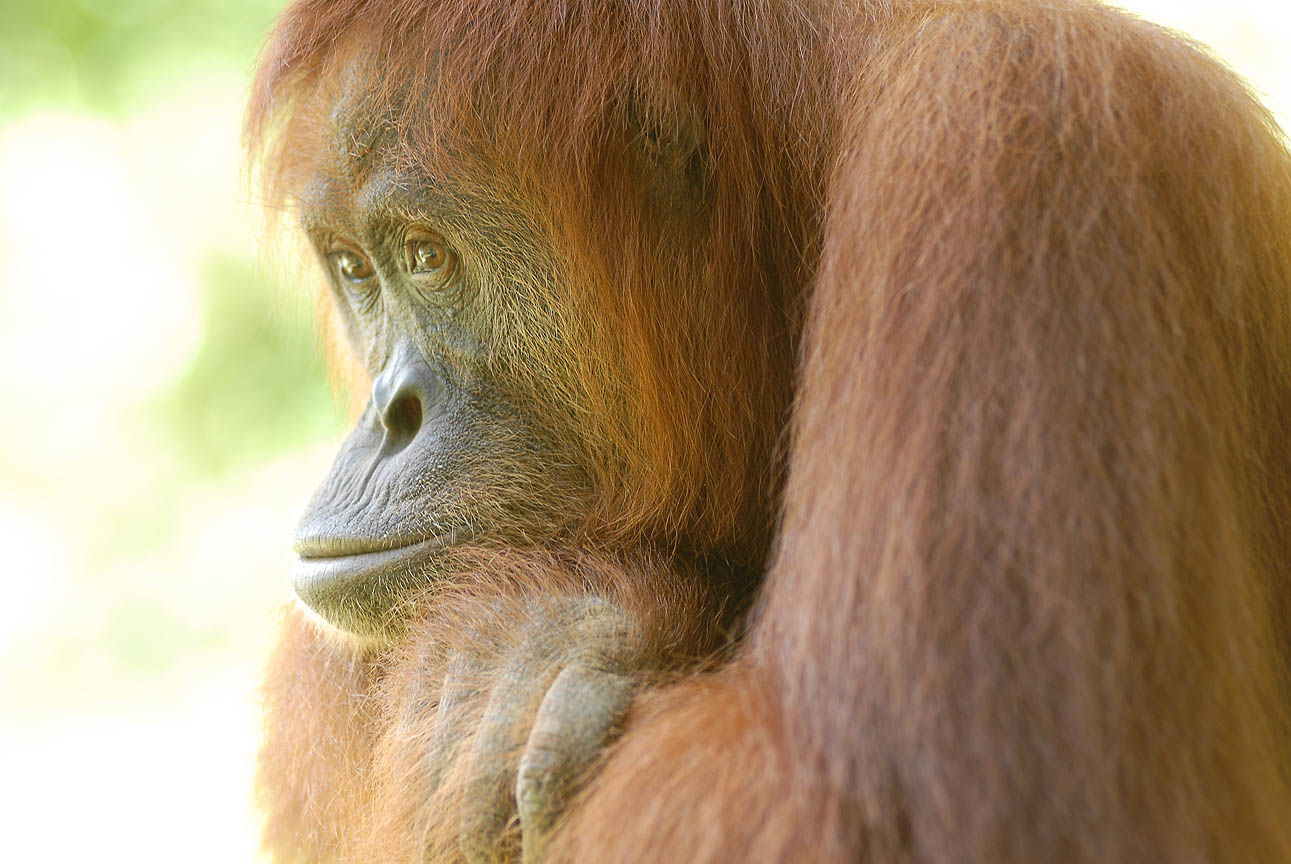
Earlier this year, a study found that great apes (chimpanzees, gorillas, orangutans, and bonobos) engage in playful teasing. This behavior shows that they understand social norms, can predict others’ reactions, and enjoy breaking expectations.
The young apes would tease by prodding their elders and running away. They tickled each other, offered objects and then pulled them back, body-slammed and pulled on wisps of hair – a move particularly common among orangutans with their long red locks!
And if the elder doesn’t respond? Well, they try again – getting more elaborate (and annoying!) each time. This study suggests that the ability to joke may have evolved millions of years ago in our common ancestor with apes.
Human infants engage in playful teasing as early as eight months old and tend to look at their mother’s face for a reaction. The same behaviour was observed in great apes. Scientists believe teasing exists to test social boundaries and strengthen relationships.
This is a fascinating discovery that sheds light on the origins of humour and demonstrates the shared intelligence of humans and apes.
You can help protect Sumatra's Orangutans. Click to get updates
